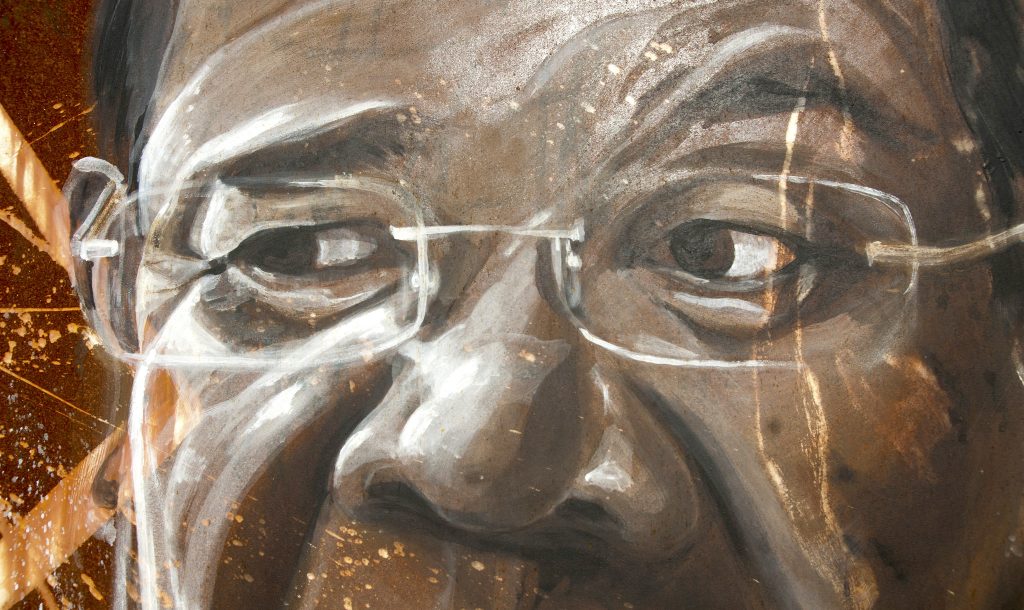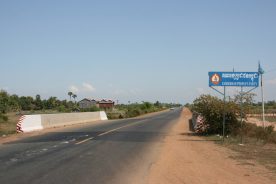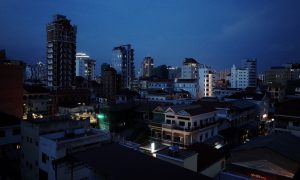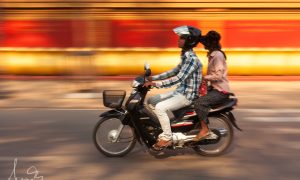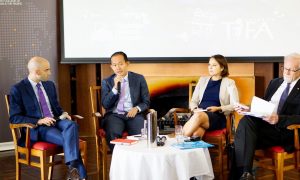In his opening remarks at a recent conference on Cambodia at the Australian National University, former Australian foreign minister Gareth Evans mentioned two significant events. First was the cowardly but deadly grenade attack on a Khmer Nation Party (KNP) rally in March 1997, the second the bloody coup staged by Hun Sen in July that year. Prof Evans went on to say that “neither episode generated much international reaction”.
I would like to respond here by saying that nothing could be further from the truth. Both events were met with international outrage and condemnation. Reactions by some powerful international actors engaged with Cambodia at the time had profound and far reaching consequences for the evolution and consolidation of Hun Sen’s power. What we see today in Cambodia is a direct outcome of the events of that fateful year.
Before examining international reactions in more detail, it is important for the reader to know that the events in question were inextricably linked to preparations for local, or commune, elections in 1997 and parliamentary elections in 1998. Equally important is the fact that the Royal Cambodian Government (RGC), formed after the United Nations Transitional Authority in Cambodia (UNTAC) mission, could not organise constitutionally required elections without international financial and technical assistance.
As will become apparent, the 1980s impasse over who organises elections in Cambodia, which finally resulted in the 1989 Australian peace proposal and UNTAC, had not gone away after the 1993 polls. Rather, the battle lines were redrawn within the newly created power-sharing government. Only one of the co-prime ministers emerging from the 1993 elections would emerge victorious after the 1998 polls.
Senior CPP leaders, like co-minister of the interior Sar Kheng, were quick off the mark in preparing the ground for elections as early as late 1995. Around the same time, some of the not-so-feckless leaders of FUNCINPEC, notably Prince Norodom Sirivudh, were pushing their leader, Prince Norodom Ranariddh, for a greater share of power in rural areas, especially at the district level.
Elections in Cambodia are won or lost in rural areas. In a dramatic show of government force on the streets of Phnom Penh, Prince Sirivudh was arrested and detained for involvement in an alleged plot to kill co-premier Hun Sen. The year before, FUNCINPEC finance minister Sam Rainsy—a vocal and harsh critic of the developing corrupt relationship between the co-prime minsters—was removed from his position in the party and eventually from the National Assembly. He would go on to become what some international observers, and many Cambodian voters, saw as the only hope for electoral politics in Cambodia.
I ask for readers forbearance if the details seem onerous, but this is necessary background for understanding the immediate reengagement of international actors in Cambodian domestic politics after UNTAC’s departure. In point of fact, because of fears of continued serious human rights abuses experienced in the run up to the 1993 elections, the first United Nations Centre for Human Rights field office was opened in Phnom Penh at the end of 1993. Justice Michael Kirby of Australia was appointed as the first Special Representative of the Secretary-General for Human Rights in Cambodia (SRSG).
In 1994, Benny Widyono, an Indonesian/American national and former UN de facto governor of Cambodia’s Siem Reap province during the UNTAC operation, was appointed as the first UN Special Representative of the Secretary General for Political Affairs in Cambodia. The United Nations Development Programme (UNDP), which had a long prior history of involvement in the country, formally opened offices in Phnom Penh in 1994. These individuals and offices would play leading roles in the drama that unfolded. Alongside these, we begin to witness a massive influx of international governmental and non-governmental developmental organisations setting up shop around the country. A veritable “aid industry” began to establish itself.
But what does all this have to do with international reaction to the events of 1997 and what we see in Cambodia today? Well, this was the national and international political and socio-economic milieu within which both co-minsters of the interior, Sar Kheng (CPP) and You Hockry (FUNCINPEC), formally requested international financial and technical assistance for two elections, local and national, in 1996.
The new RGC was of course obligated to follow the new 1993 constitution, which called for periodic multiparty democratic elections, if it was to continue to receive international recognition and associated benefits. This was hugely problematic for the CPP leadership because, despite their best efforts under the noses of foreigners, they had in 1993 come second to FUNCINPEC by a notable margin despite resorting to violence, intimidation, coercion and fear to secure votes.
It was hugely problematic for FUNCINPEC, the actual winners of the 1993 elections, because the façade of 50–50 power sharing meant they struggled to capitalise on the clear support they had among voters against an entrenched incumbent administration. Hun Sen’s actions in 1997 were also hugely problematic for the international diplomatic community, because they effectively derailed the democratic train set in motion by the Paris Peace Accords and UNTAC.
The UN accepted the formal request for electoral assistance sent in 1996. It had to, because of the peace accords and UNTAC. The UN had no real teeth before UNTAC. The Cambodia adventure had had the potential to transform how international relations could be conducted for good, post-Cold War.
Let me fast forward. UN and foreign involvement in Cambodian elections post-UNTAC was as divisive as ever, if not more so. Prince Ranariddh and his supporters wanted the UN to verify the elections process from start to finish. Why wouldn’t they? Ranariddh’s party had won because UNTAC had lifted the lid on CPP control enough for a returning royalist party to win the votes they did. Indeed, one of the major successes of UNTAC was the work of the information education component. Staffed by foreigners—many of whom could speak Khmer; people who were familiar with Cambodian history, culture and society—did a remarkable job of providing neutral information amidst the propaganda of the contesting parties, including the Khmer Rouge.
The UN accepted the formal request for electoral assistance sent by the co-minsters of the interior, subject to the outcome of needs assessment missions. To cut a long story short, Francesc (no, his first name is not spelt incorrectly) Vendrell conducted such missions and concluded that local or commune elections would result in a “bloodbath”. He spoke with all key players including Hun Sen, who reportedly told him in a rant that the UNTAC elections were, crudely paraphrasing, the “worst in Cambodia’s history and the worst in the world”.
In his report back to UN headquarters, Vendrell said it was clear what Hun Sen was up to. Without going into the details of the report—a copy of which is in this author’s possession—he clearly expressed his view that Hun Sen was resolutely and as far as possible out to destroy any opposition to him and his party by any means. That was in 1996. Timing is important. Hun Sen was bitter. The peace accords’ signatories needed to keep the successes of UNTAC on track.
As a result of Vendrells’ 1996 mission findings, and perhaps for other technical reasons, the 1997 local elections were postponed. Nonetheless, hand grenades were thrown into the Khmer Nation Party (KNP) rally led by Sam Rainsy in March 1997. There was a bloodbath. Why? Because the KNP and Sam Rainsy, together with FUNCINPEC, were a credible and serious electoral threat to an electorally unpopular CPP. The bloodbath continued during and after Hun Sen’s coup in July. If that wasn’t bad enough, here is the international relations kicker: the much vaunted and celebrated Paris Peace Accords, and the achievements of the unprecedented UNTAC operation, would be dead in the water if international signatories simply rolled over and accepted the outcome of Hun Sen’s military action. And yet foreign diplomats stationed in Phnom Penh at the time were happy that finally the deadlock between the two prime ministers appeared to be over.
Preparations for the elections—which effectively meant building everything again from virtually nothing—had stalled because of a deterioration in relations between the two co-prime ministers. But relations had deteriorated because of what was at stake in the elections they were supposed to be preparing for. Immediately after Hun Sen’s coup, the Cambodian/Australian national Ung Huot was put forward by Hun Sen as the unelected FUNCINPEC replacement for the elected co-prime minister Ranariddh. This was done in the hope that normalcy could be restored and the government could get on with preparations for elections—which they did, with international support, but without the elected co-prime minster and other credible opposition to the CPP. Sound familiar?
It was an obvious farce.
Now, back to international reactions to the events of 1997. An American citizen, Rob Abney, was injured in the March 1997 grenade attack on the KNP rally. Apparently, Abney was at the time working for the USAID-funded International Republican Institute (IRI). As a consequence, the US Federal Bureau of Investigations (FBI) dispatched a team to Cambodia to find out what happened. This was all reported in the media at the time; you may go onto the internet and do a cursory search for details. The upshot was that the FBI findings leaked into the mainstream. The Washington Post reported that the FBI report “tentatively” pointed the finger of responsibility at members of Hun Sen’s personal bodyguard. Conspiracy theories still hold sway as no-one has been brought to justice for the attack. Occam’s razor calls for the more parsimonious explanation.
Four months later, the country was thrown back into further chaos with Hun Sen’s military action at the beginning of July. Or had it? Had Hun Sen carefully anticipated and managed international reaction to his military action? Just how important were elections in 1998 in the context of the Paris Peace Accords and UNTAC to those international players involved in their creation?
Yes, the Khmer Rouge problem and possible war crimes tribunals were significant factors. These were even more significant in the context of the scheduled elections. Remember, whomever controls the state apparatus can control the outcome of the elections. Had Hun Sen wrested enough control back after his defeat in 1993 to ensure an outright victory in 1998? Contrary to Prof Evans’ comments at the ANU conference, international reactions were both swift and far-reaching. Non-humanitarian aid was suspended by the US and Germany, Cambodia’s seat at the UN was left vacant, and the country’s imminent entry into ASEAN was put on hold.
Back to preparations for elections. For those donors in Phnom Penh fatigued by Prince Ranariddh and Hun Sen’s shenanigans, the outcome of the coup brought temporary relief. Ranariddh, fearing arrest, fled Cambodia hours before the fighting began. Other leaders of the opposition followed soon after. With Ranariddh’s “replacement” in situ, election preparations under the auspices of the UNDP could continue. In the best of times, at least nine months is needed to prepare for elections. The RGC along with international partners had less than a year to put everything in place, including the stalled legislative framework, a National Election Commission (NEC), and a Constitutional Council—not to mention the plethora of technical and logistical arrangements related to voter lists and registration, among other things.
But could legitimate elections really take place without Ranariddh and other leaders of the opposition? Apparently not. After the hundreds of millions of dollars spent on UNTAC, it was ultimately decided by the international powers that be, in the shape of “the friends of Cambodia” group, that Ranariddh and others must return safely to compete in the elections, under the conditions of a controversial proposal put forward by the Japanese known as the “four pillars” plan or initiative.
There isn’t the space here to go into all of the details. The information is readily available for those who are interested. Suffice it to say, I believe Hun Sen carefully calculated the international response to the coup. He knew he couldn’t get away with no international involvement in the elections. It is interesting to note that the restoration of Cambodia’s seat at the UN, resumption of aid, and entry into ASEAN was pitched in the media as being predicated on Hun Sen’s agreement to hold elections. Preparations, although stalled, were already underway before the grenade attack and the coup. He and his regime had created the necessary political chaos to ensure any electoral opposition was severely damaged allowing them to control the process as much as they could thereafter.
The murder of more than a hundred mainly FUNCINPEC officials in the aftermath of the coup was sidelined by the international community in Cambodia as attention was turned to the elections. In spite of calls from some international quarters to postpone them preparations continued without opposition leaders. When they did eventually return to the country they had very little time to rebuild their shattered party infrastructures.
Explaining the crackdown in Cambodia
Two factors: the CPP is spooked by its declining electoral fortunes, and the west hasn't spoken up for democracy.
If Prof Evans meant to imply in his opening remarks that the episodes in 1997 did not receive the attention they deserved in bringing Hun Sen to book for his actions, then I would agree. If he was implying that the international response was a façade to mask the true goal of international politicians and diplomats to hold elections despite the murders and human rights abuses, then I would also agree.
But if his comments were intended to gloss over these facts, then I would strongly disagree that the international reactions did not amount to much. On the contrary, they rewarded Hun Sen with an election he had greater control of than he otherwise would have without the coup.
Today’s dynamics may different, but just how different are they? China was already making its presence felt in Cambodia with grants and loans in 1996, and it was clear that that was set to continue. All said and done, the underlying problem for Hun Sen remains that without thoroughgoing changes within his party he would never win an election on a level playing field against the opposition. Even for seasoned observers, it’s hard to imagine how Hun Sen and his international partners could keep a straight face and spin the outcome of this year’s election without the participation of the CNRP.
 Facebook
Facebook  Twitter
Twitter  Soundcloud
Soundcloud  Youtube
Youtube  Rss
Rss 